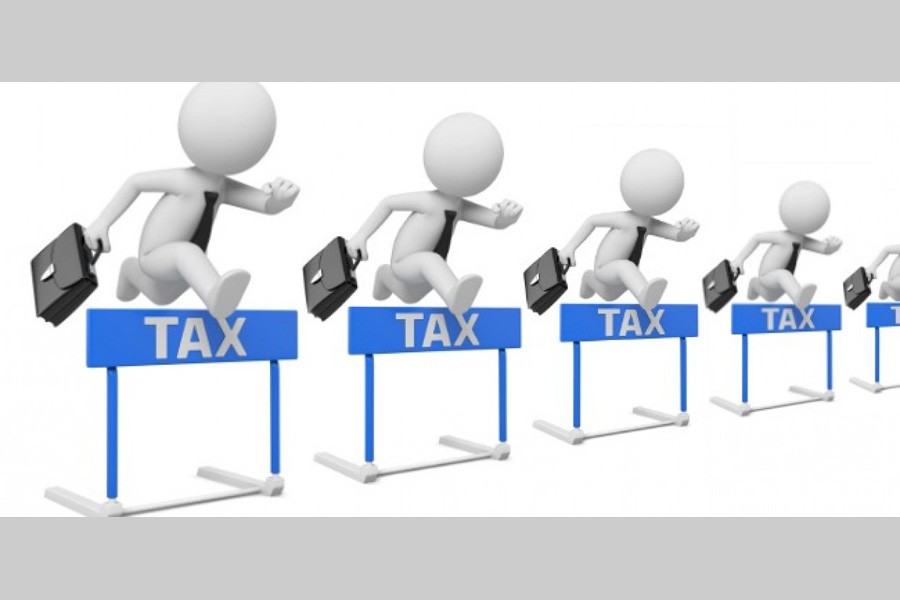The finding of an international report that the Bangladeshi companies, on an average, are required to spend 435 hours to pay their annual taxes does, in fact, highlight the other side of the story. Business enterprises are known to toil hard and spend more than usual time in securing services from different government agencies and utility providers. But, according to the report, they do also face trouble in giving something, in this case, annual taxes, to the government. The report in question, prepared by the Pricewaterhouse Coopers (PwC) in collaboration with the World Bank (WB), has found that a company in Bangladesh has to go through 33 rounds of payments to complete its tax procedure, which is significantly higher than the global average of 23.8 rounds.
The time the Bangladeshi businesses are required to spend on their tax payments is almost double the global average. In contrast, under an efficient tax administration, businesses are paying their taxes only 12 hours in the United Arab Emirates, 29 hours in Bahrain and 35 hours in Hong Kong. The situation is much better in all South Asian countries except Bangladesh. But, why should the businesses suffer so much here when the government is in dire need of tax revenue?
Truth is that factors like the cumbersome tax filing procedures and the taxmen's non-cooperative approach, among others, are largely responsible for making tax payments difficult for the businesses. The government policymakers have time and again assured the businesses of making tax payments easier and hassle-free, but the situation on the ground has remained almost unchanged. Taxmen often refuse to accept the returns submitted by private companies and claim unjustified amount as tax on the plea of auditing their files. However, one can hardly rule out the propensity among a section of taxpayers, both individuals and companies, to evade payment of tax in right amounts. But while trying to stop such evasion, taxmen must make things easier for honest taxpayers by removing all the hurdles.
There is no denying that the government's corporate tax revenue earning has gone up over the years. But that does not anyway support the claim that the tax payment system has become easier and taxpayer-friendly in a significant way. One way of making the tax-payment system taxpayer-friendly is automation. Despite making tall claims by the National Board of Revenue (NBR) honchos, the system is far from being fully-automated and efficient. Rather, it has remained vulnerable to all sorts of irregularities, financial or otherwise.
The PwC-WB report on 'Ease of Paying Taxes' ranking highlights the unusual time that the companies are required to spend on their tax payments but does not point out the underlying factors behind the delays. In fact procedures involved in tax payments should be made easy and hassle-free. In a country like Bangladesh, the propensity to avoid tax payment or to pay in lesser amounts should not be seen as an unusual phenomenon. The authorities do need to keep this in mind and make the tax-filing process easy and less time-consuming. A cumbersome and hassle-ridden tax filing process remains one of the major factors that hurt investment, both local and foreign.


